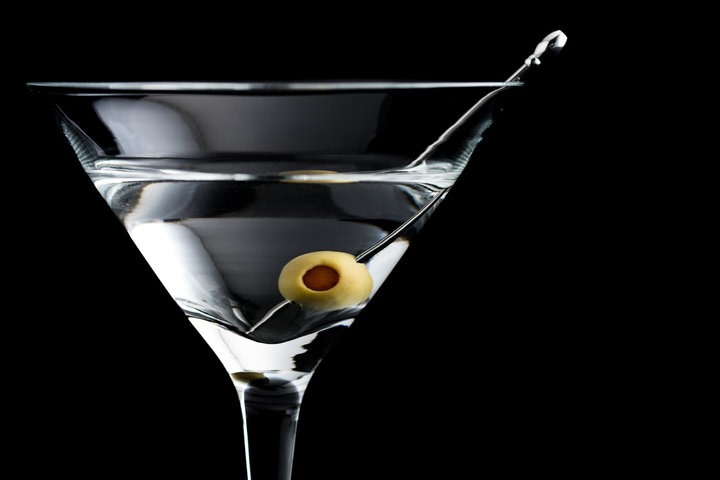
Vodka martin cocktail with olives on black background
Ernest Hemmingway was an alcoholic.F. Scott Fitzgerald was an alcoholic.
Dorothy Parker was an alcoholic.
Notice a trend here?
According to research 71% of famous writers have battled with alcoholism at some point, yet alcohol dependency effects only 8% of the general population.
Which begs the question – how many of the great works of fiction were written in an inebriated state; blank pages transformed into history at the tap of a typewriter key and the clink of a whiskey glass? Were the most beautiful and meaningful metaphors and similes set down in darkness with a final swig from an ever evaporating bottle of wine?
“I’m an alcoholic. I’m a drug addict. I’m homosexual. I’m a genius.”
― Truman Capote (1924-1984)
The world of the alcoholic writer ever so subconsciously, soaks their fiction. The personal relationships in Jim Thompson’s crime novels reek of it – characters are pleasant in the morning, argumentative in the afternoon and abusive at night. Behavior common to the alcoholic – yet Thompson probably didn’t intend that – it was simply the lifestyle he knew. How many can read anything Stephen King wrote and wonder, what the hell was he on? More than whiskey, yes, we nod knowingly. His books, he even admitted, are peppered in alcohol and white powder.
Does alcohol become the catalyst – a way of assisting those thoughts to rise and form into a coherent work, or does it instead serve to deal with the often dark thoughts once they have been unearthed and left lingering in the recess of your mind? There is something about the very act of creation that contains an element of self sacrifice, where you are dredging up funny, personal, deep, or dark emotions, past parts of you, and reliving them, inside of you, before you assemble the words on a page, or the paint on a canvas, or the notes on a piano. The audience gazes at art, viewed safely from a distance.
“I’m Catholic and I can’t commit suicide, but I plan to drink myself to death.”
― Jack Kerouac (1922-1969)

Dorothy: Frequently Soused
Of course writers and artists are often loners. Writing is by its very nature – something you do alone. Alcoholics are also often loners, so is there any wonder there is some overlap? The life of a writer is necessarily a lonely, isolated endeavor, and alcohol can make the process more creative, the loneliness easier to handle.
For a while. Alcohol can become your friend. But writing itself is also a way of dealing with isolation. There elements are an intricate, linked, revolving circle. Can you really die of alcoholism or did writers like Dorothy Parker, die of loneliness?
When Charles Baudelaire wrote “Be always drunken. Nothing else matters,” he might have indeed been drunk. Yet what he was stating was the obvious truth. When you create, as when you are really alive, as when you drink or take drugs – you can soar – and all that you see in a moment as you glance down are white-grey clouds blanketing everything, obscuring the ground below.
It’s most important to live and be drunk with life.
“I like to have a martini,
Two at the very most.
After three I’m under the table,
after four I’m under my host.”
― Dorothy Parker (1893 – 1967)
